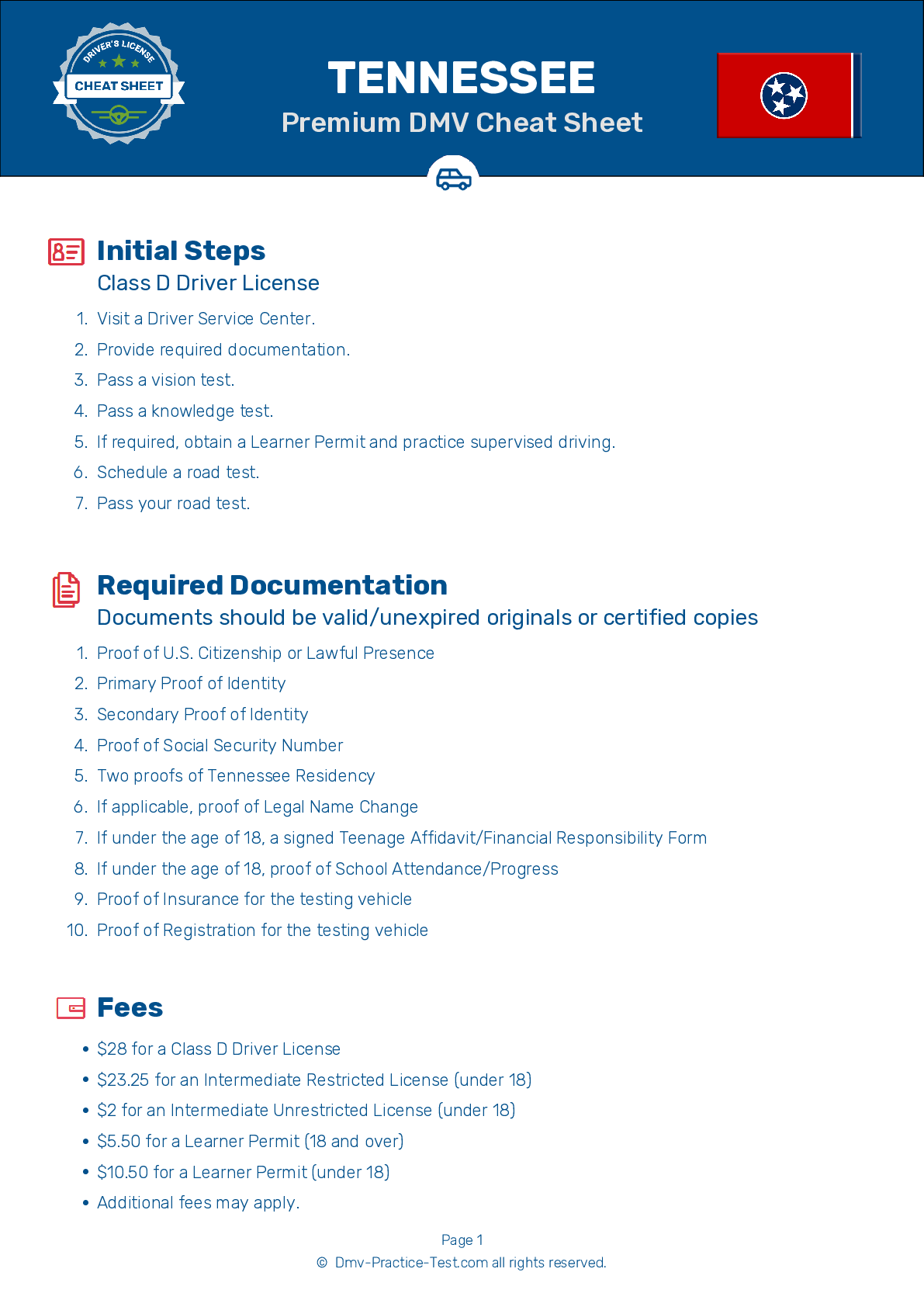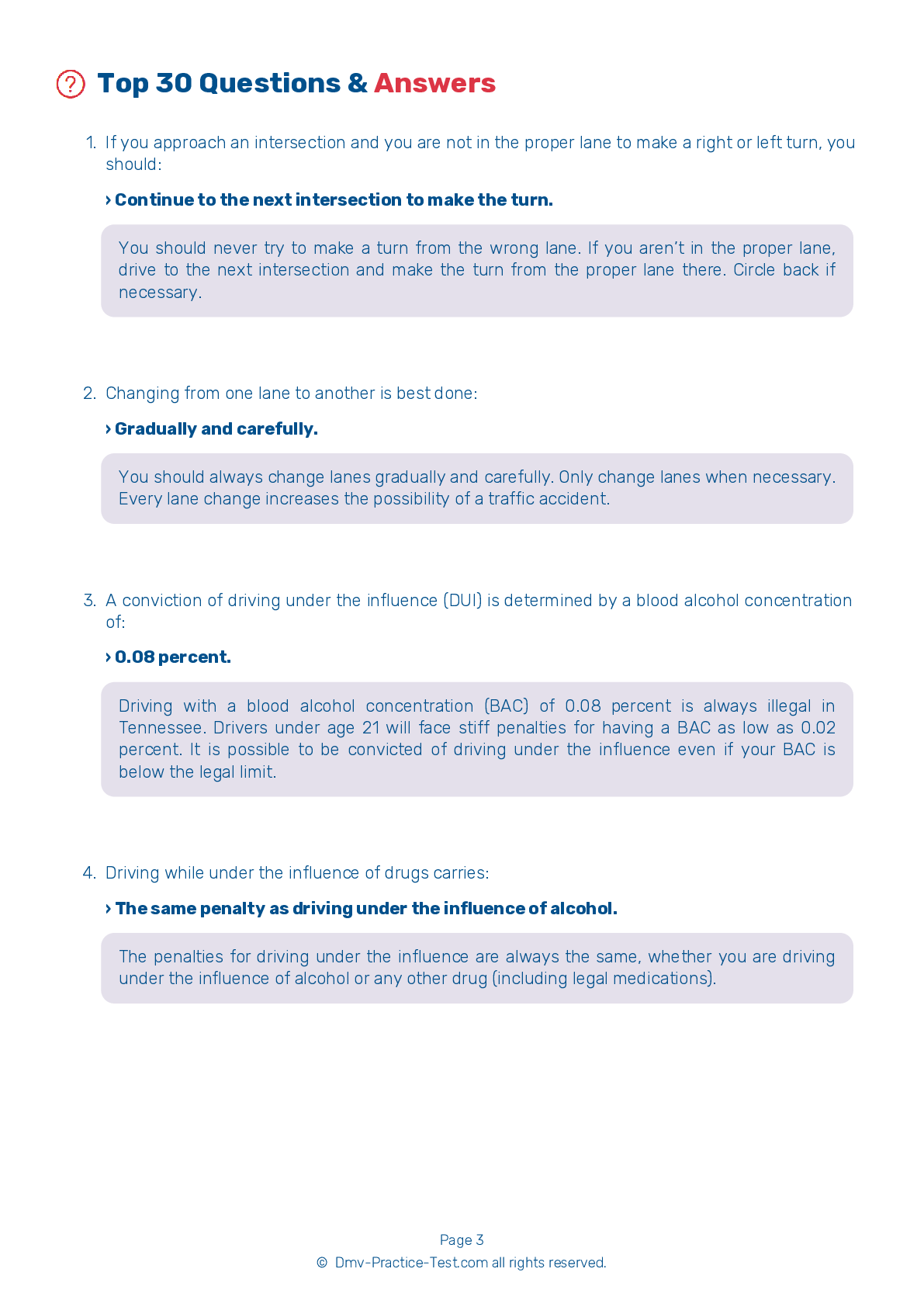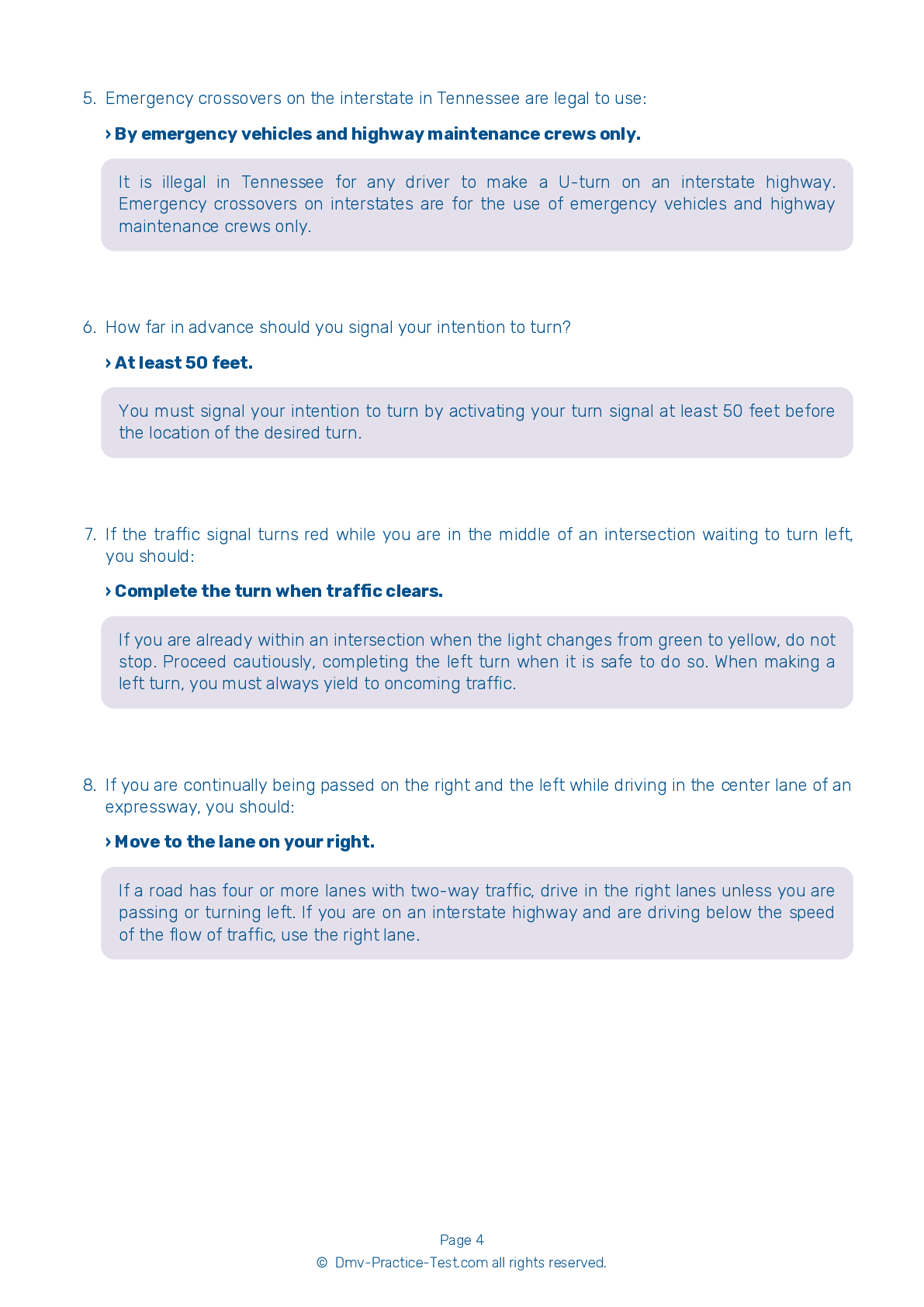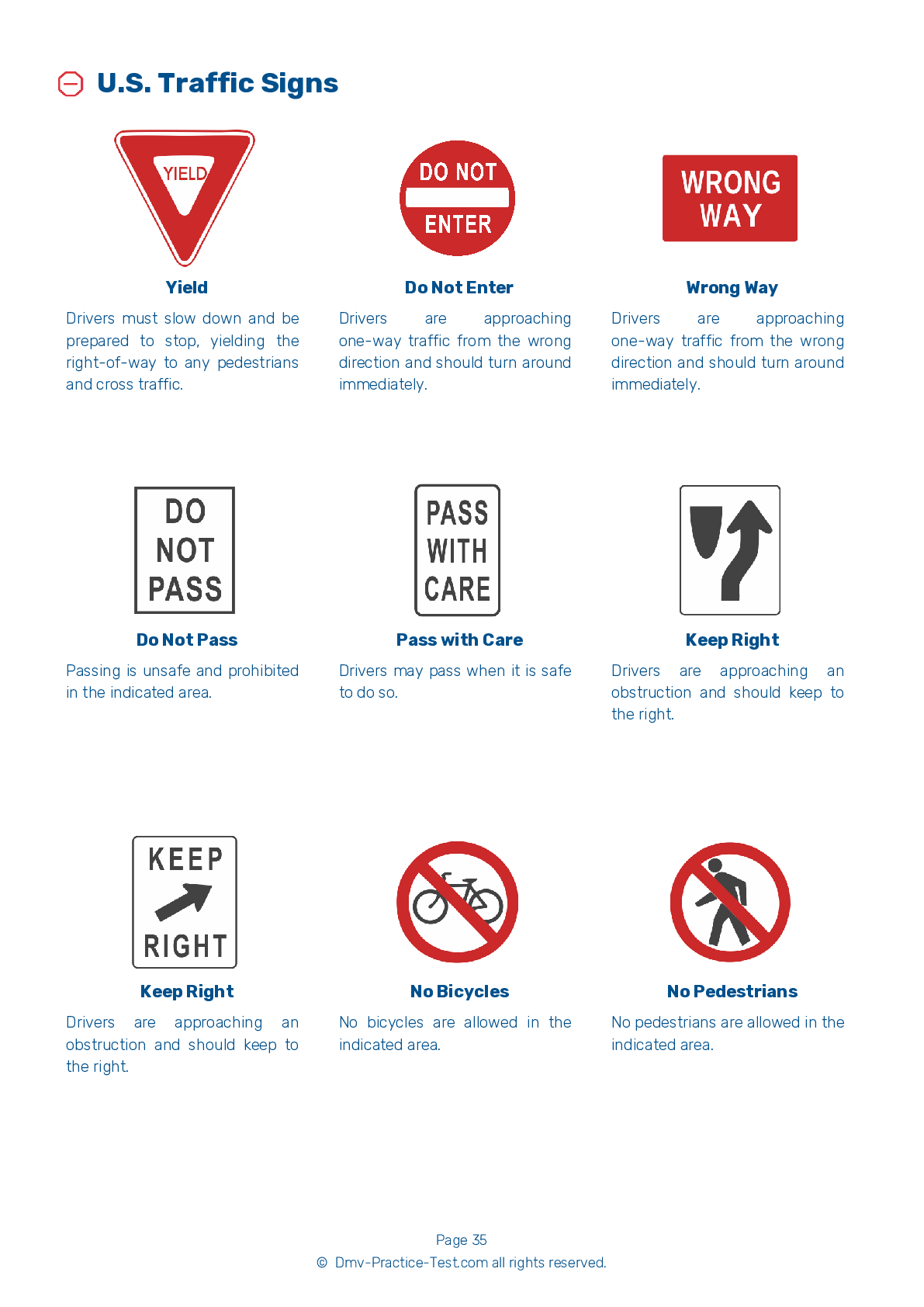FREE Tennessee DMV Practice Test #15 Page 4 of 4
The Tennessee DMV practise exams for January 2026 have been updated. It includes questions based on the most important traffic signals and laws for 2026 from the Tennessee Driver Handbook. To study for the DMV driving permit test and driver's licence exam, use actual questions that are very similar (often identical!) to the DMV driving permit test and driver's licence exam.
Each question on the practise exam has a tip and explanation to help you recall the ideas. Questions about traffic rules, traffic signs, and driving statutes, as well as knowledge from the Driver Handbook, will be included in the written portion of the official Tennessee DMV test.
You must properly answer 24 of the 30 questions to receive a passing mark. Use the Tennessee Department of Motor Vehicles' practise exam to help you prepare for your instruction permit or driver's licence.
The DMV exam is offered in a variety of languages.
Using any form of testing help will result in an automatic fail, and the DMV may take further action against your driver's licence, so avoid it.
25 . On a freeway, you should look farther ahead than you would on a city street:
On the freeway, be ready for changes in traffic conditions. Watch for signals from other drivers. Expect merging vehicles at on-ramps and interchanges and be prepared for rapid changes in road conditions and traffic flow.
26 . To help others see you when daylight begins to fade, you should use your:
As daylight begins to fade, turn on your low beams to help others see you. Only use your high beam headlights in an open area where no other drivers are present.
27 . The driver ahead of you stops at a crosswalk. What should you do?
You must not pass a vehicle that is stopped at a crosswalk. There may be pedestrians crossing the street that you cannot see. Instead, stop, proceeding only after all pedestrians have crossed.
28 . Drivers turning left must yield to:
Drivers turning left must yield to oncoming vehicles that are driving straight ahead. A turning driver may only proceed when they can safely turn without affecting oncoming traffic.
29 . In which of the following scenarios should your wheels not be pointed straight ahead?
While waiting to turn left, keep your wheels pointed straight ahead until it is safe to start your turn. If a vehicle hits you from behind, this will prevent you from veering into oncoming traffic. When parked facing either uphill or downhill, turn the wheels so the vehicle will not roll into traffic if the brakes fail.
30 . Where is it safe to pass another vehicle?
Never pass within intersections or at other intersecting points, such as parking lot entrances and alleyways. Any time your view is blocked by a curve or a hill, you should stay in your lane and assume that there is an oncoming vehicle just out of sight. Wherever signs and/or pavement markings permit passing other vehicles, you will have to determine whether or not you have enough space to pass in a safe manner.
See the exact questions that will be on the 2026 Tennessee DMV exam.
99.2% of people who use the cheat sheet pass the FIRST TIME
LT gives us an insight on how the cheat sheet provided her with all the study questions she needed before taking her test.
Joe initially studied with the handbook and failed his test, he eventually found us online, studied and pass his test the first time around.



